The 10 Best Venture Capital Books
Discover the 10 best venture capital books to elevate your knowledge of venture capital deals, startup funding, and investment strategies. Perfect for aspiring venture capitalists, entrepreneurs, and startup founders looking to gain valuable insights into the modern venture capital industry.
Posted June 13, 2025

Join a free event
Learn from top coaches and industry experts in live, interactive sessions you can join for free.
Table of Contents
The venture capital industry is both highly sought-after and competitive, offering unique opportunities for those who understand its intricacies. Whether you're an aspiring venture capitalist, an existing VC looking to level up your skills, a startup founder seeking funding, or an entrepreneur exploring the field of venture capital deals, knowledge is your most valuable tool. This list of the best venture capital books will provide practical insights, actionable strategies, and an understanding of the modern venture capital landscape.
1. Build: An Unorthodox Guide to Making Things Worth Making

- By: Tony Fadell
- Published: 2022
- 4.7/5 (1,006 ratings)
- Best For: Everyone who wants to grow in the workplace
Tony Fadell, a successful entrepreneur and co-founder of Nest Labs, shares lessons on creating innovative companies and structuring investments that lead to value creation. As a pioneer in technological innovation (Nest was acquired by Google for $3 billion), Fadell’s advice is also rooted in his experience with industry giants like Apple, where he oversaw the development of the early iPod and iPhones. The book is ideal for startup founders and aspiring investors looking to understand what makes ventures scalable and attractive to venture capitalists.
Build addresses the strategic thinking required for success in a highly competitive industry and offers insights into the creative capital that drives promising startups.
Our Review: What sets this book apart is its raw, unpolished delivery, which feels more like a conversation with a brilliant, no-nonsense mentor than a traditional guide. For VCs, it’s a window into the founder experience: the grit, the personal sacrifices, and the relentless decision-making required to build something truly groundbreaking. If you’re investing in (or hop to invest in) disruptive ideas, The Build will sharpen your ability to spot founders who have what it takes to overcome the chaos and thrive. This book is less about the "why" of building and more about the "how" of enduring, making it a must-read for anyone working closely with ambitious entrepreneurs.
2. Venture Deals: Be Smarter Than Your Lawyer and Venture Capitalist
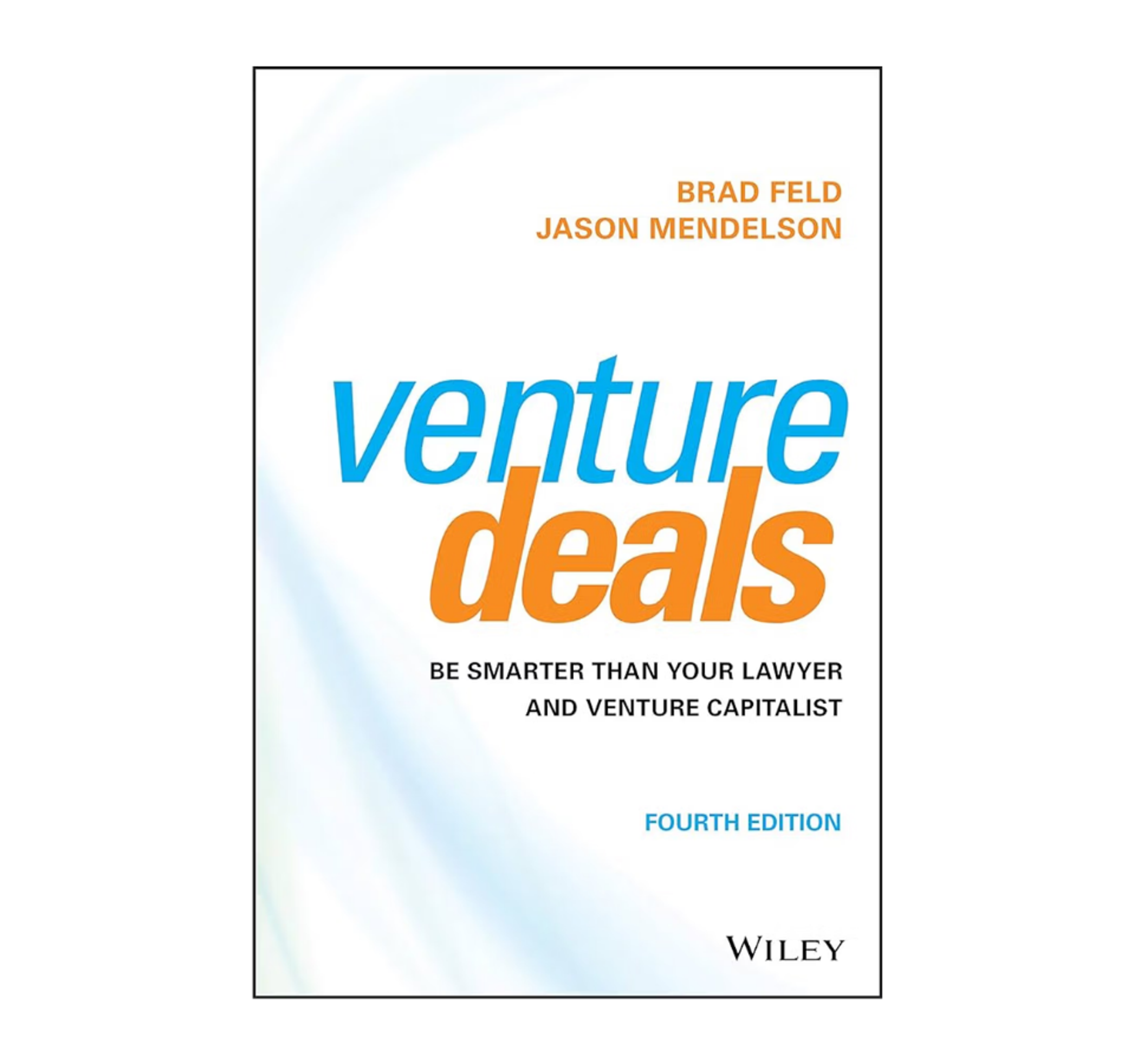
- By: Brad Feld and Jason Mendelson
- Published: 2019
- 4.7/5 (784 ratings)
- Best For: Those who want to know more about VC in general or who are starting a business
A favorite among startup founders and aspiring venture capitalists, Venture Deals explains the intricacies of term sheets, venture capital investments, and deal structuring. Feld and Mendelson, founding partners of the Foundry Group, share insights on how venture capital firms approach investment strategies and startup funding.
This book is particularly helpful for entrepreneurs seeking to understand venture deals and aspiring investors looking to enter the VC world. Its approachable tone and practical advice make it one of the best venture capital books available today.
Our Review: Venture Deals is perfect for those who are newer to the world of VC and are looking to understand the business model and how to navigate the different stakeholders. It goes into the perspectives of the entrepreneur, the venture capitalist, the accountant, the lawyer, the angel investor, and other important players. Venture Deals will help you understand the bigger picture and how the different pieces come together to create the modern VC industry.
3. Secrets of Sand Hill Road: Venture Capital and How to Get It
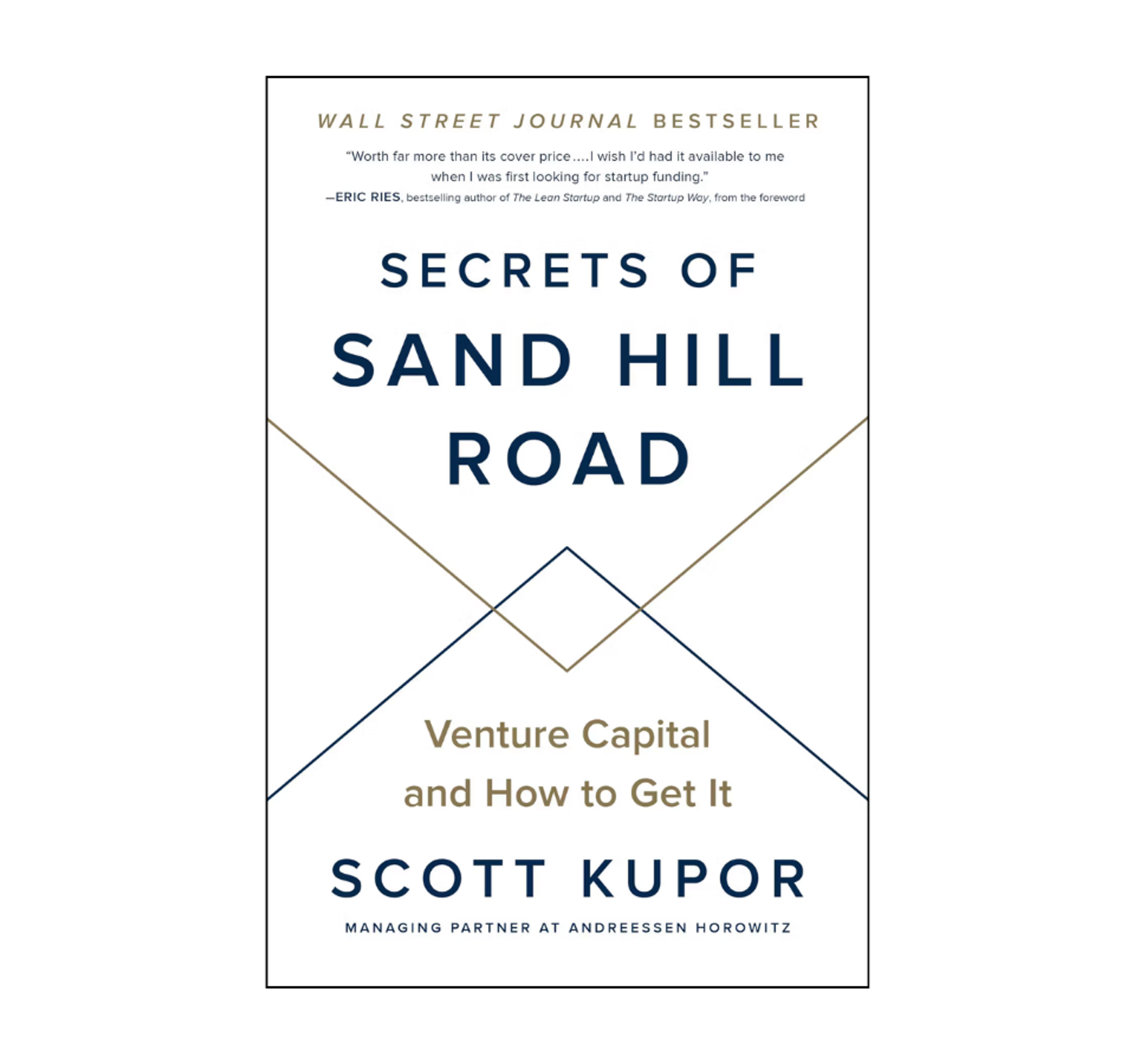
- By: Scott Kupor
- Published: 2019
- 4.7/5 (606 ratings)
- Best For: Those not currently in the VC field who are interested in how firms interact with startups and make internal decisions
Scott Kupor’s inside account of venture capital deals offers invaluable insights for entrepreneurs seeking to secure funding. As a managing partner at Andreessen Horowitz, Kupor explains how venture capital firms evaluate early-stage companies, structure investments, and manage relationships with limited partners.
This book highlights the startup fundraising process, including how successful entrepreneurs can negotiate deals and maximize their outcomes. It also explores the strategic thinking behind the secrets of Sand Hill and Road’s most notable venture capitalists.
Our Review: In Secrets of Sand Hill Road, Kupor pulls back the curtain of what goes on behind VC firms. He breaks down the jargon, goes into the relationship between the VC and LP, deconstructs an example term sheet, and even goes through a couple of case studies. This book is best for those who are newer to the industry; those who are already well-versed may find the information somewhat elementary.
4. Power Law: Venture Capitalist and the Making of the New Future
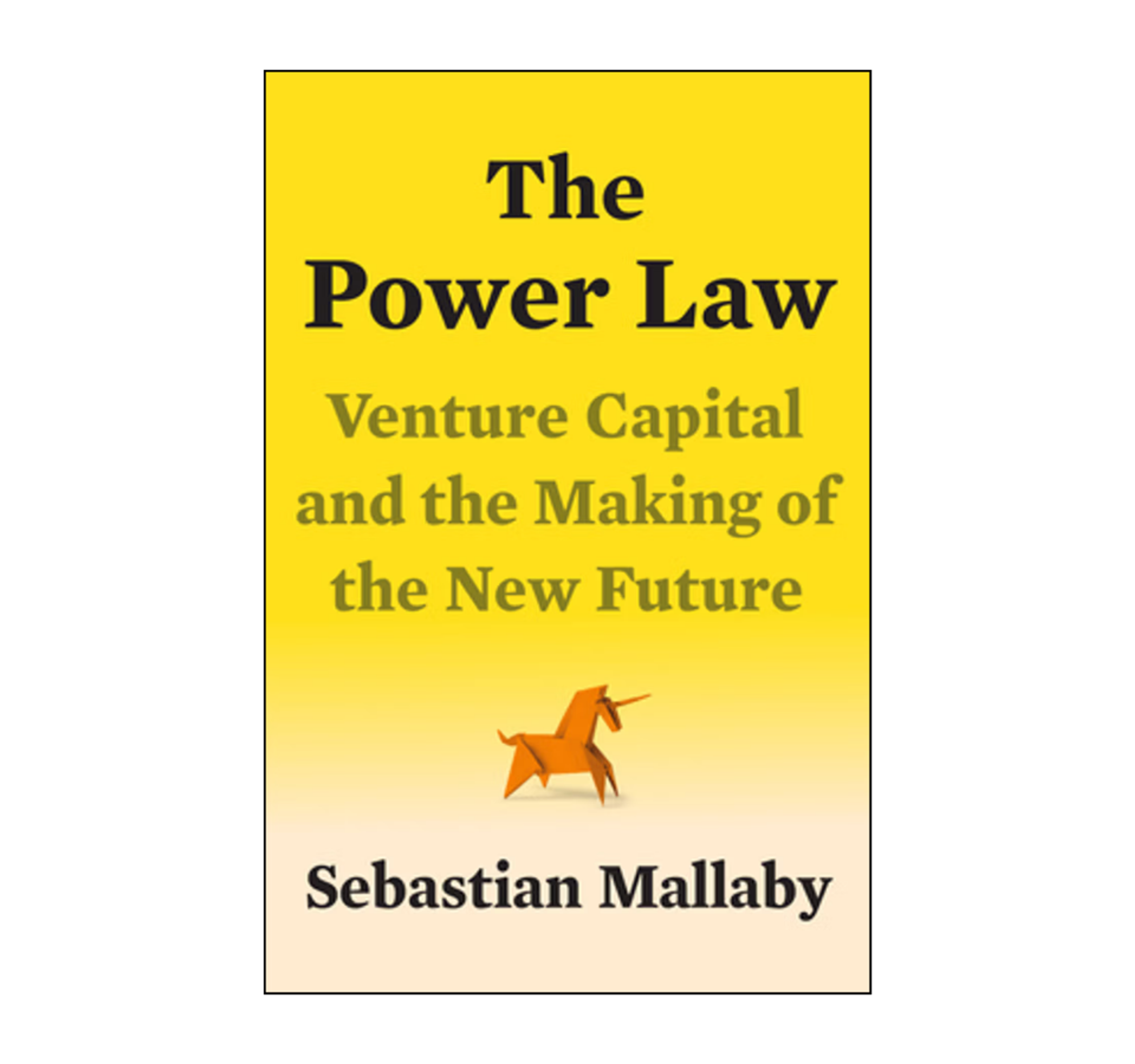
- By: Sebastian Mallaby
- Published: 2022
- 4.6/5 (347 ratings)
- Best For: Those interested in the history of venture capital and how it has become the institution it is today
Power Law goes further than explaining how VC works and provides an insight into how first venture capital firm first came to be and its ever-evolving role in the United States’ ecosystem. It spends a lot of time looking at individual venture capitalists and their rise to power, including Jim Swartz and Arthur Patterson, the founders of Accel, and Doug Leone and Michael Moritz, who took over from the founder of Sequoia Capital Don Valentine. Lastly, the book reviews the growth of venture capital in China.
Our Review: The Power Law is a great read for both venture capitalists and entrepreneurs seeking a deeper understanding of the industry’s unique dynamics. Mallaby goes beyond surface-level insights, uncovering the historical forces, bold personalities, and transformative deals that define the VC industry. What makes this book stand out is in the name: the exploration of the "power law" mindset, or how a few outsized successes drive the entire industry. It’s a look at how VCs balance risk, timing, and storytelling to shape the future of innovation, offering lessons and context you won’t find in typical guides to the field.

The Best 50+ Free Resources to Break Into Venture Capital
We've compiled the most comprehensive list of all the best resources to help you land a job in the competitive world in VC.
5. Mastering the VC Game: A Venture Capital Insider Reveals How to Get from Start-up to IPO on Your Terms
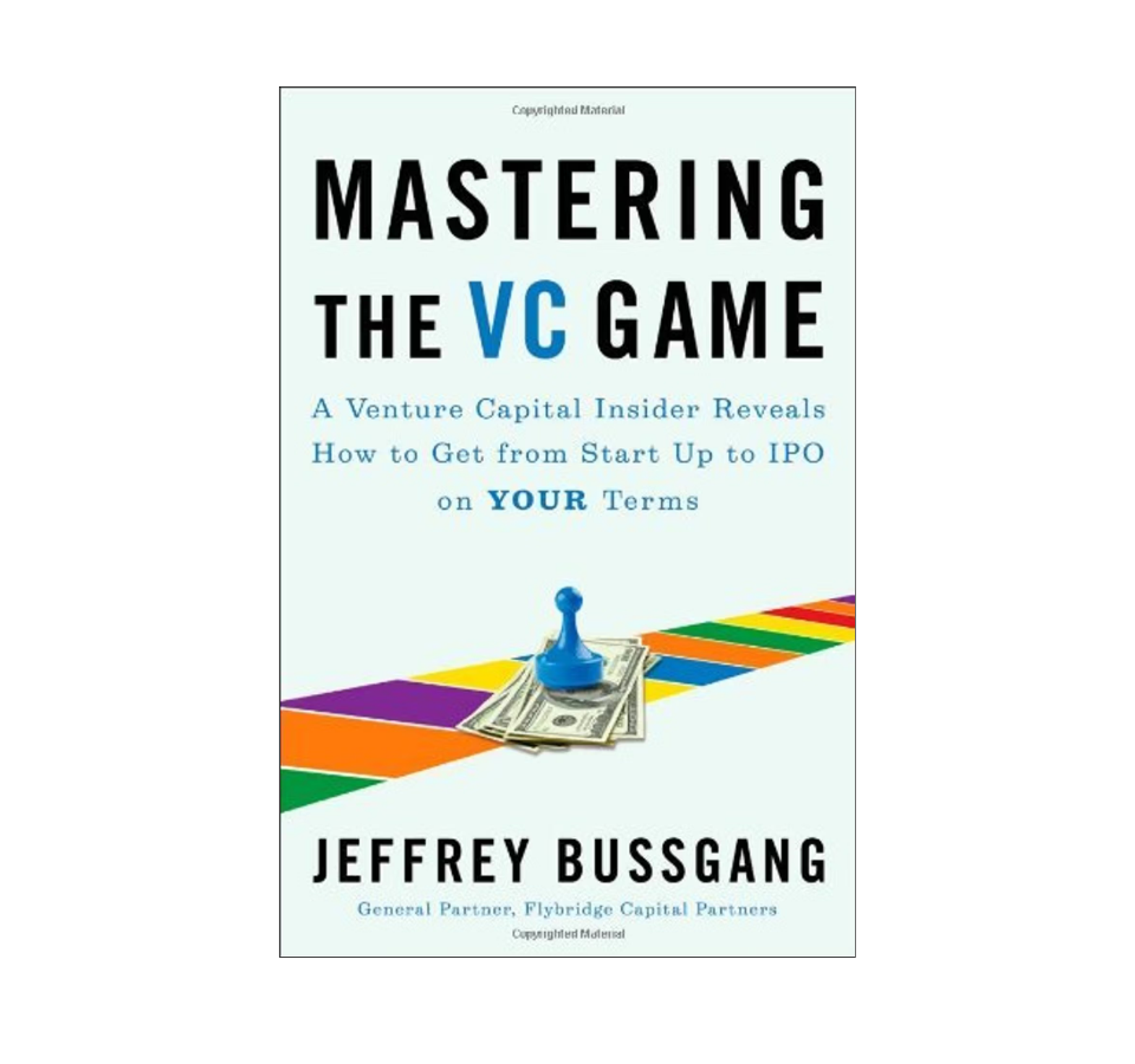
- By: Jeffrey Bussgang
- Published: 2010
- 4.5/5 (293 ratings)
- Best For: Current/aspiring entrepreneurs who are looking to get VC funding
As a managing partner and former entrepreneur, Jeffrey Bussgang provides a practical guide to exploring the venture capital industry. His book explores how venture capital insiders assess entrepreneurs seeking funding and offers advice for startup founders on building strong relationships with venture capital firms. Uniquely, Bussgang has sat on both sides of the venture capital table: as an entrepreneur in need of funding, and as a representative of a firm. He also spent time as a Senior Lecturer at Harvard Business School.
Mastering the VC Game is particularly useful for understanding the dynamics of startup financing, angel investing, deal structuring, and exit strategies. Aspiring investors and co-founders will appreciate Bussgang’s ability to simplify complex concepts.
6. #BreakIntoVC: How to Break Into Venture Capital and Think Like an Investor
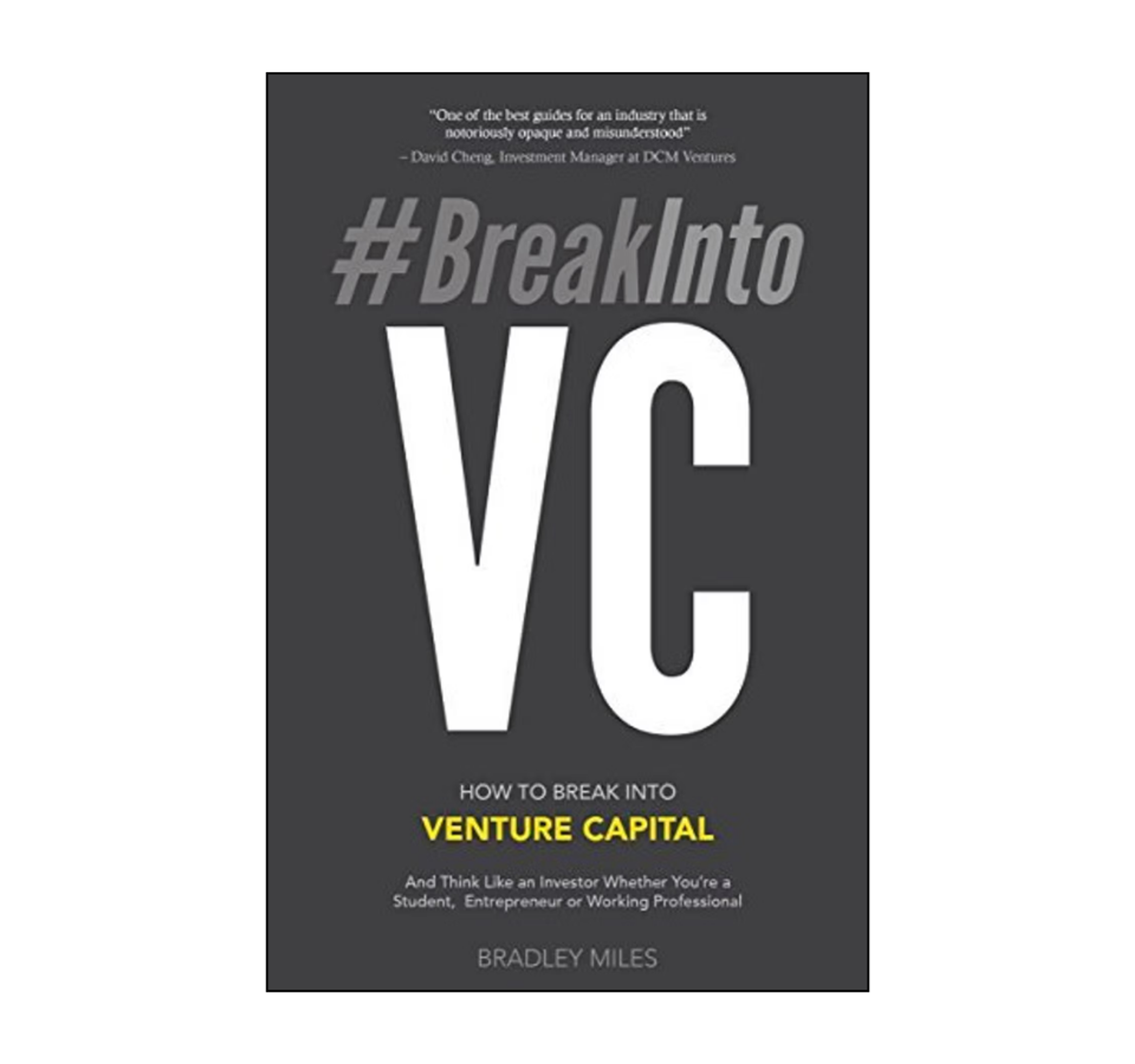
- By: Bradley Miles
- Published: 2017
- 4.5/5 (241 ratings)
- Best For: Those trying to get a job in venture capital
Bradley Miles offers a clear roadmap for aspiring venture capitalists looking to join the industry. His book provides an inside account of how to evaluate startup funding opportunities, build networks with leading practitioners, and think strategically about early-stage companies.
With real-world examples and case studies, #BreakIntoVC is a practical guide for those entering the highly competitive industry of venture capitalism. It’s an excellent resource for aspiring investors and entrepreneurs seeking to understand the VC world.
7. The Business of Venture Capital: The Art of Raising a Fund, Structuring Investments, Portfolio Management, and Exits (3rd Edition)
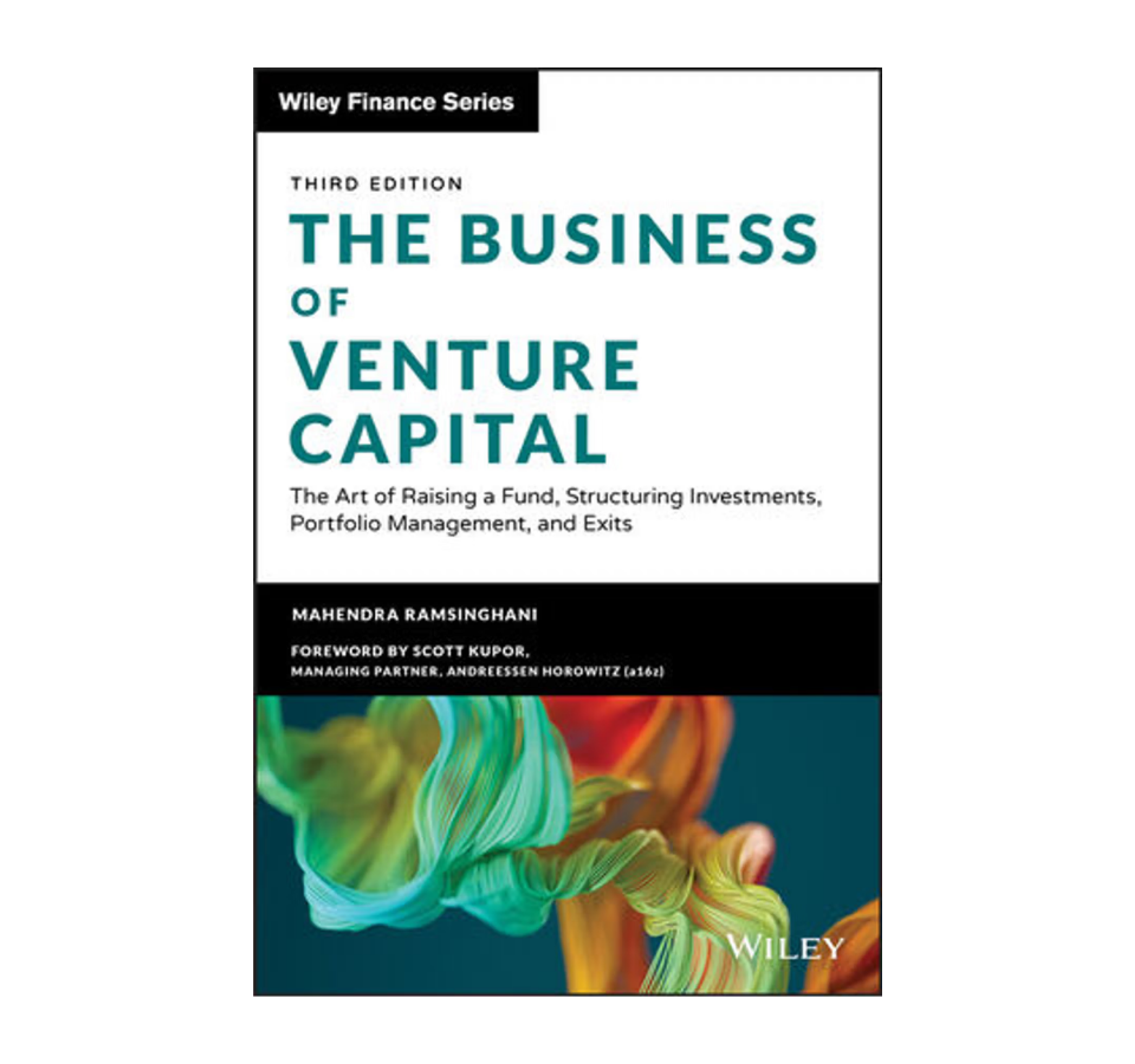
- By: Mahendra Ramsinghani
- Published: 2021 (3rd Edition)
- 4.7/5 (103 ratings)
- Best For: Entrepreneurs and people trying to get into venture capital
Mahendra Ramsinghani delivers a detailed overview of how venture capital firms operate. From raising funds to managing portfolios, the book covers every aspect of the venture capital investing landscape. It also explains how innovative companies secure funding and achieve economic growth.
The latest edition includes updated insights into investment strategies and emerging trends, making it a valuable resource for understanding the modern venture capital industry.
Our Review: Ramsinghani provides one of the most comprehensive overviews of the VC industry that we’ve read, but does so in a way that is highly applicable to many other parts of business, and life. The author’s expertise is clear as he fills in the gaps that other introductory books pass over in an approachable, easy-to-read way.
8. Venture Capital Deal Terms: A Guide to Negotiating and Structuring Venture Capital Transactions
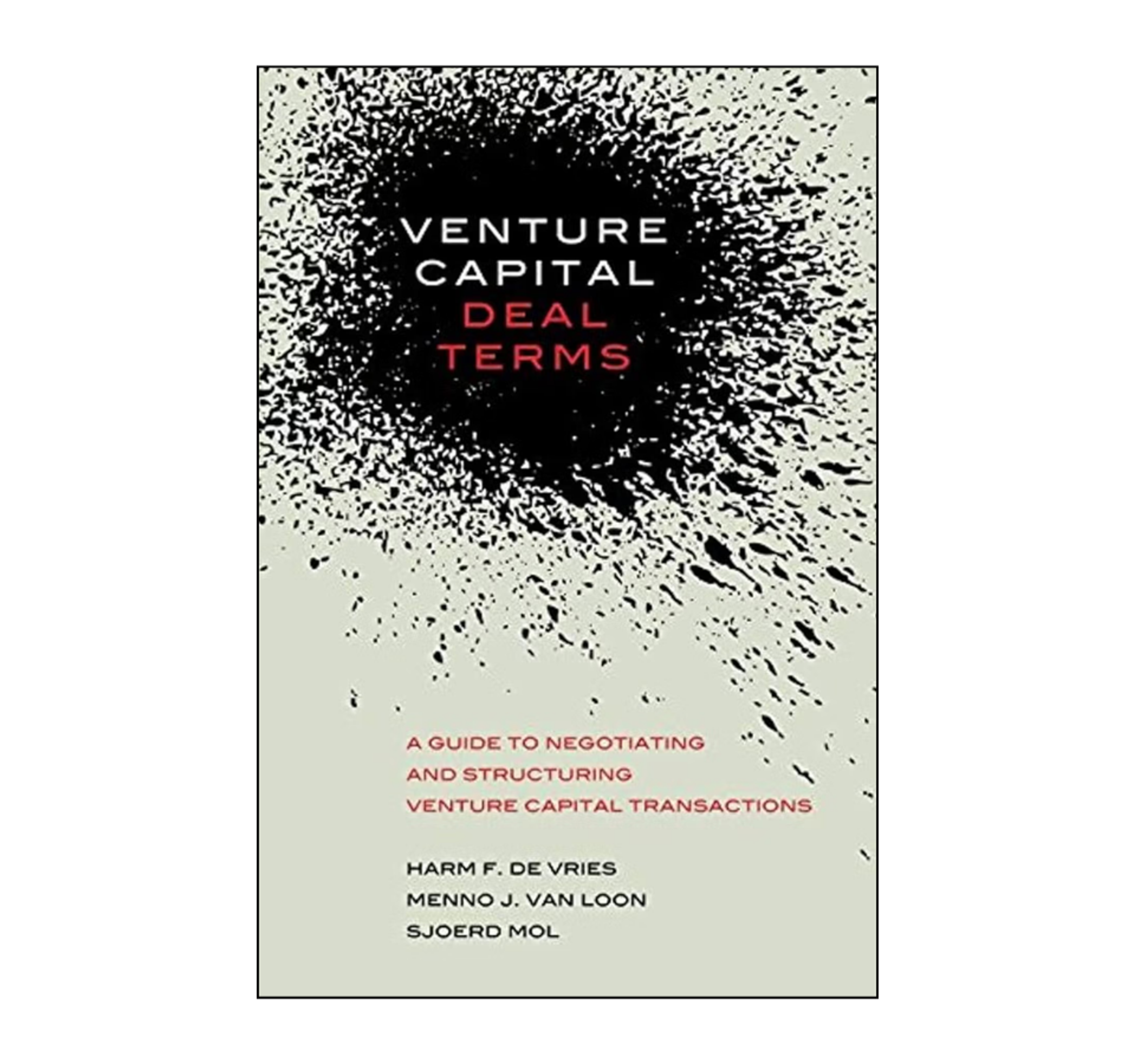
- By: Harm F. De Vries, Menno J. Van Loon, and Sjoero Mol
- Published: 2020
- 4.5/5 (84 ratings)
- Best For: Anyone who plans to be involved in a VC deal
Vries et al. dig into what a venture capitalist deal actually entails. What are the motivations of both parties and what does each want? What are the different ways that the deal could change? How is due diligence performed? How will the options impact both the start-up and the VC investors?
After reviewing the different stages of financing, Venture Capital Deal Terms uses a case study of a Series A fundraising round to look at the different clauses in a transaction. It then provides advice for entrepreneurs, investors, and advisors so that all parties can make an informed decision that’s best for them.
Land a VC Job With the Help of an Expert
Trying to get into venture capital? Here are some of our amazing VC coaches who can help with networking strategies, building skills, technical/behavioral interview prep, and much more. The best way to reach your dream job is to work with an expert.
9. The Entrepreneurial Bible to Venture Capital: Inside Secrets from the Leaders in the Startup Game
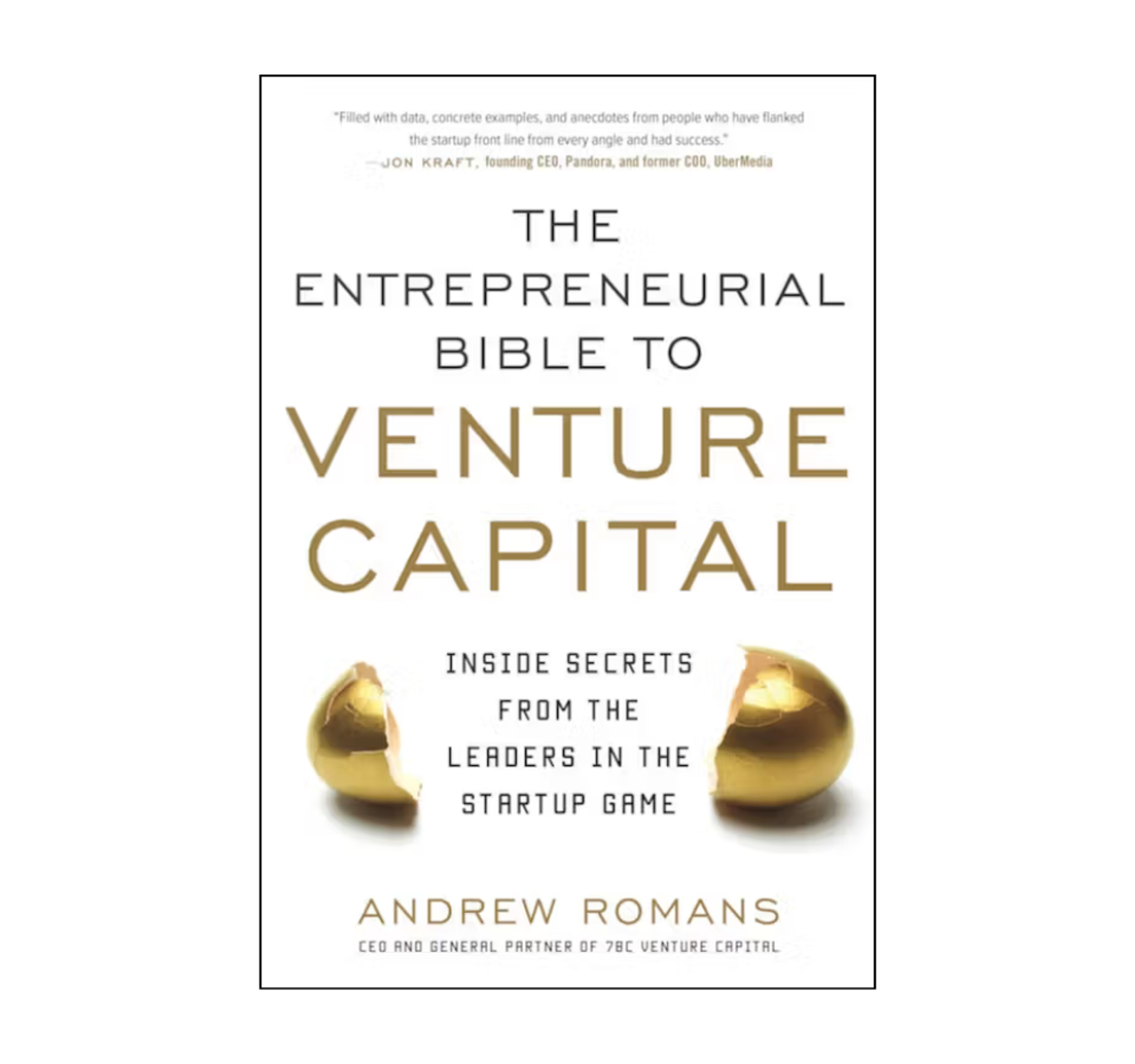
- By: Andrew Romans
- Published: 2013
- 4.5/5 (92 ratings)
- Best For: Entrepreneurs
Andrew Romans compiles lessons from notable and influential figures in venture capital to guide entrepreneurs through the startup fundraising process. The book focuses on building value, attracting angel investors, and achieving scalable growth in technology startups.
Romans emphasizes actionable advice, making this book particularly relevant for co-founders and aspiring investors looking to understand the entrepreneurial journey.
Our Review: The Entrepreneurial Bible is a practical guide for entrepreneurs navigating the complexities of fundraising. Unlike other books that focus solely on the VC perspective, this one gives equal weight to the founder’s experience, offering actionable advice on pitching, negotiating, and structuring deals. What makes it particularly valuable is its focus on real-world tactics, like understanding term sheets and building relationships with investors, which are often glossed over in other books. However, for both entrepreneurs and early-stage VCs alike, it’s a tactical playbook packed with insights that go beyond the basics.
10. Venture Capital Strategy: How to Think Like a Venture Capitalist
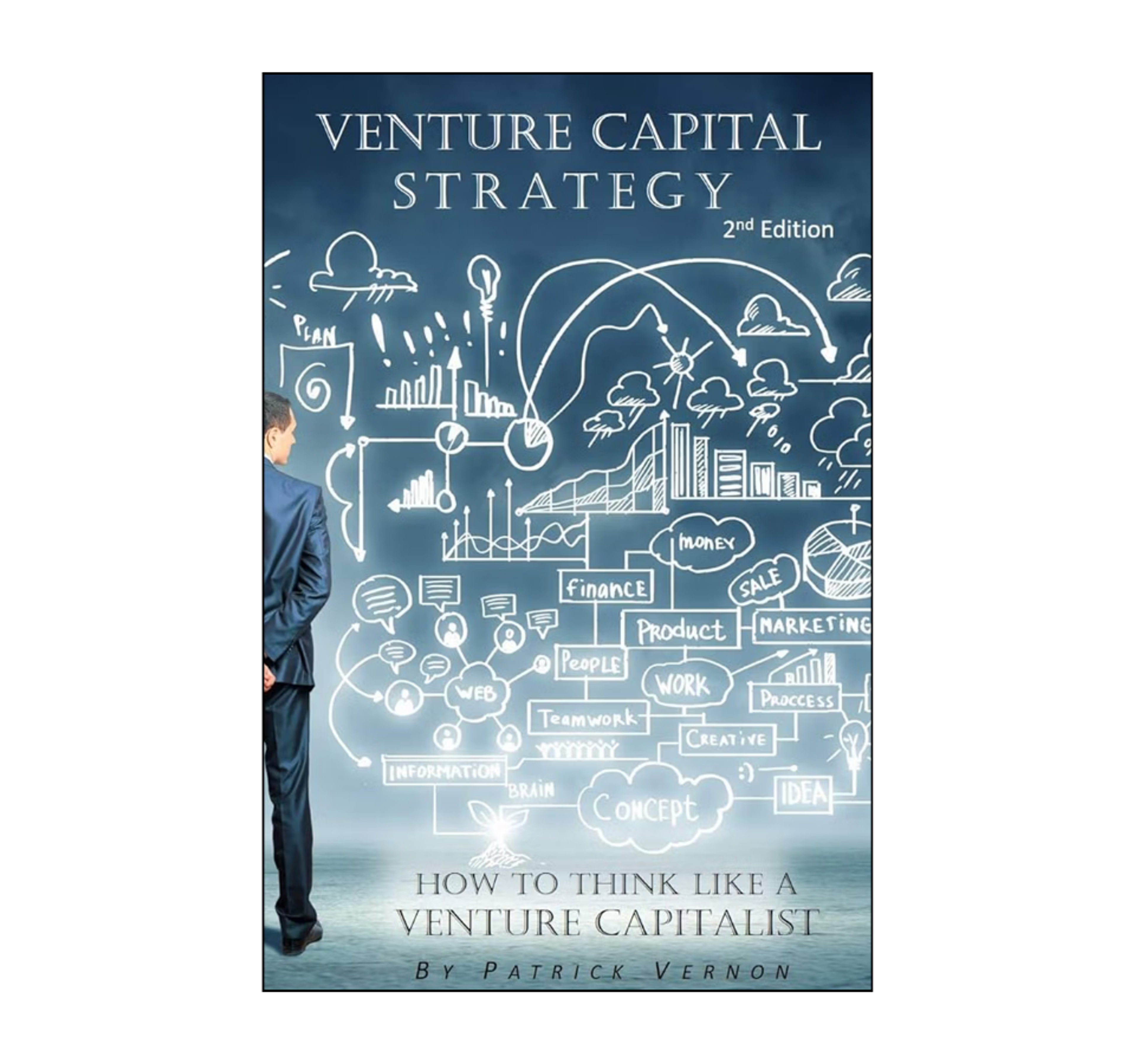
- By: Patrick Vernon
- Published: 2020
- 4.5/5 (47 ratings)
- Best For: Aspiring venture capitalists
Patrick Vernon’s book provides a strategic overview of the economic development of the venture capital industry, focusing on how leading practitioners assess investment opportunities. It explores the differences between venture capitalism and other funding models, offering insights into what makes the VC game unique.
This book is ideal for aspiring venture capitalists and entrepreneurs seeking to understand the VC world’s nuances. Vernon’s straightforward approach makes it an essential addition to any professional’s essential reading list.
Bonus – What a Unicorn Knows: How Leading Entrepreneurs Use Lean Principles to Drive Sustainable Growth
By: Matthew E. May and Pablo Dominguez
Though not about venture capital in particular, What a Unicorn Knows provides an insight into what makes some start-ups successful where others fail. For those wanting to break into the field, it will elucidate the key factors to pay close attention to and break down a VC investment. For entrepreneurs, learn how to scale your business and deliver maximum growth through minimum means. This book will be available in February 2023.
FAQs
What is the meaning of venture capital?
- Venture capital refers to funding provided by investors, known as venture capitalists, to startups and early-stage companies with high growth potential. These investments often involve equity stakes in the companies, allowing venture capitalists to share in the success if the business thrives. Venture capital is a critical component of the startup ecosystem, enabling innovative companies to scale and succeed.
What are the 4 Ts of venture capital?
- The 4 Ts of venture capital typically refer to Team, Technology, Traction, and Timing:
- Team: The quality and expertise of the startup's leadership and co-founders.
- Technology: The innovation or intellectual property that sets the startup apart.
- Traction: Proof of market demand, often demonstrated through early customers, partnerships, or revenue.
- Timing: The alignment of the startup’s launch with market trends and opportunities.
What is an example of venture capital?
- An example of venture capital is Sequoia Capital’s early investment in Google. Sequoia Capital, one of the leading venture capital firms, provided funding during Google’s early stages. This funding allowed Google to expand operations, hire top talent, and develop its groundbreaking search engine technology. The investment paid off significantly, as Google became a global technology leader.
What are the 4 P's of venture capital?
- The 4 P's of venture capital are often defined as People, Product, Potential, and Profitability:
- People: The team behind the startup, including their skills, experience, and vision.
- Product: The company’s offering, including its uniqueness and value proposition.
- Potential: The market size and growth opportunities available for the product or service.
- Profitability: The startup's ability to generate revenue and achieve financial sustainability.
Key Takeaways
- The venture capital industry is highly competitive and requires a deep understanding of funding, investment strategies, and startup growth.
- The books listed in this article provide valuable insights into venture capital deals, term sheets, deal structuring, and the modern venture capital landscape.
- Readers can learn from venture capitalists and industry giants, gaining practical advice on startup fundraising, angel investing, and building innovative companies.
- Key concepts such as the power law, economic growth, and the role of early-stage companies are explored in-depth throughout the recommended books.
- Whether you’re an aspiring venture capitalist, a startup founder, or an entrepreneur seeking funding, these books offer essential knowledge to advance your career.
Additional Resources
Venture capital is a highly competitive field because of the relatively few jobs available, high compensation levels, and attractive exit opportunities. To better understand the industry and major players, read the following articles:























